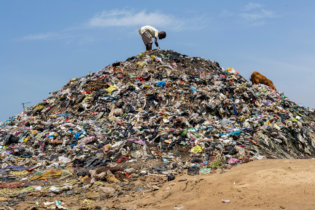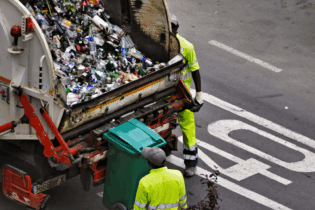The Department of Environmental Affairs, along with Jeffares and Green as the consultants, has launched the National Organic Waste Composting Strategy which will is aimed at all stakeholders who play a role in the management of organic waste in the country including municipalities and private entities. Public private partnerships will also be targeted. It is essential to limit waste to landfill due to limited airspace available at the operating landfills in the country. One of these ways, and also one supported by the Clean Development Mechanism because it combats climate change, is composting.
The strategy aims to assess the current trends, both national and international, in organic waste treatment and disposal. It will identify and engage the relevant stakeholders that play a role so as to identify problems, needs and key issues associated with this important aspect of the management of solid waste. A strategy will then be developed. Primarily, composting will be used. Methods include open or non-reactor systems: backyard composting and turned windrow piles which is organic waste in rows or piled heaps. These are turned frequently, allowing for aeration, a static windrow pile system which is not disturbed and relies on anaerobic digestion, and vermicomposting, utilising earthworms or other species for decomposition. Reactor methods or closed systems imply a higher degree of control due to air flow, temperature and moisture setting which can be manipulated in a closed vessel.For those interested in registering as stakeholders, this can be done on www.jgi.co.za or more information can be sourced from Stuart Gower-Jackson on stuart@jgi.co.za
Did you know that 30% of household waste can be turned into compost and that more than 30% of food is thrown away by the consumer? Food waste costs of landfilling in the country are estimated at R500 million per year and diverting only a cubic metre of this waste can save municipalities up to R350 of airspace. The case is certainly made for composting.






